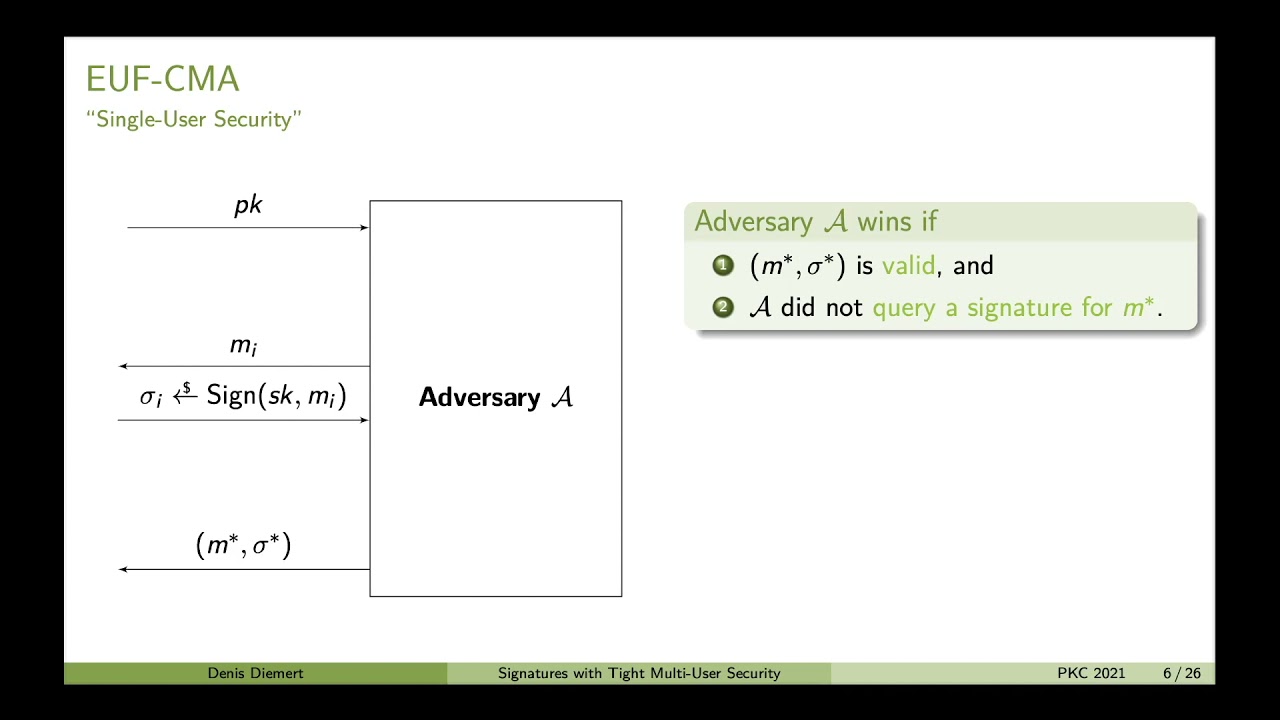Welcome to the resource topic for 2021/235
Title:
More Efficient Digital Signatures with Tight Multi-User Security
Authors: Denis Diemert, Kai Gellert, Tibor Jager, Lin Lyu
Abstract:We construct the currently most efficient signature schemes with tight multi-user security against adaptive corruptions. It is the first generic construction of such schemes, based on lossy identification schemes (Abdalla etal; JoC 2016), and the first to achieve strong existential unforgeability. It also has significantly more compact signatures than the previously most efficient construction by Gjosteen and Jager (CRYPTO 2018). When instantiated based on the decisional Diffie-Hellman assumption, a signature consists of only three exponents. We propose a new variant of the generic construction of signatures from sequential OR-proofs by Abe, Ohkubo, and Suzuki (ASIACRYPT 2002) and Fischlin, Harasser, and Janson (EUROCRYPT 2020). In comparison to Fischlin etal, who focus on constructing signatures in the non-programmable random oracle model (NPROM), we aim to achieve tight security against adaptive corruptions, maximize efficiency, and to directly achieve strong existential unforgeability (also in the NPROM). This yields a slightly different construction and we use slightly different and additional properties of the lossy identification scheme. Signatures with tight multi-user security against adaptive corruptions are a commonly-used standard building block for tightly-secure authenticated key exchange protocols. We also show how our construction improves the efficiency of all existing tightly-secure AKE protocols.
ePrint: https://eprint.iacr.org/2021/235
Talk: https://www.youtube.com/watch?v=rps1iHnC7Pk
Slides: https://iacr.org/submit/files/slides/2021/pkc/pkc2021/211/slides.pdf
See all topics related to this paper.
Feel free to post resources that are related to this paper below.
Example resources include: implementations, explanation materials, talks, slides, links to previous discussions on other websites.
For more information, see the rules for Resource Topics .
